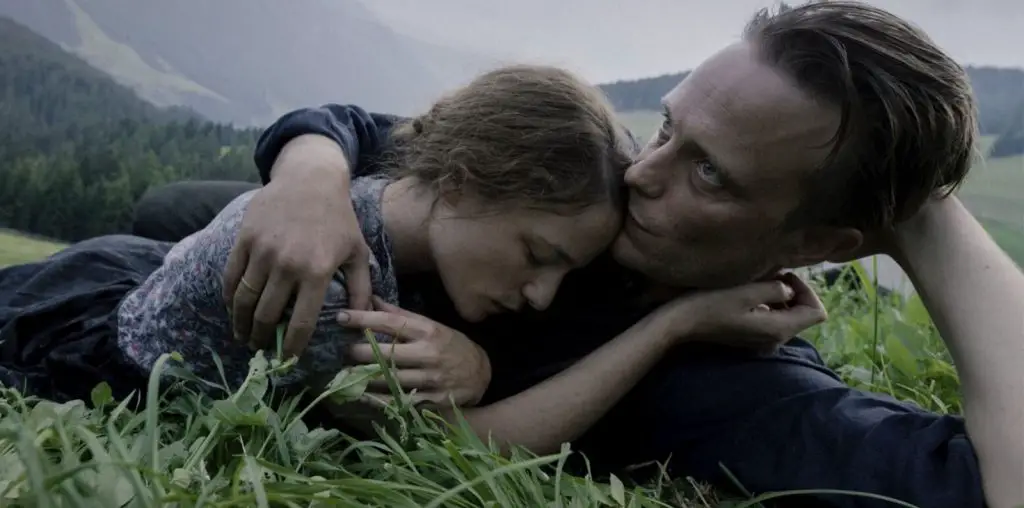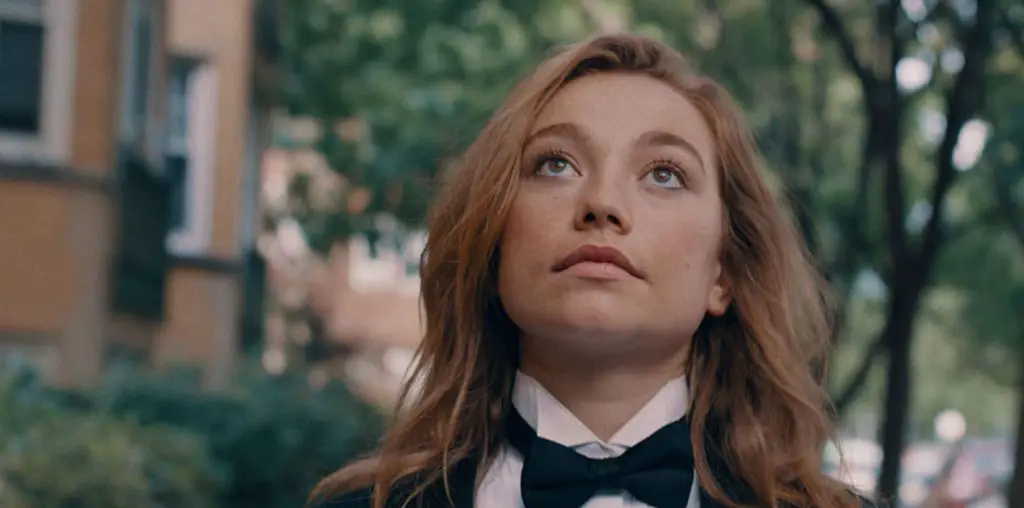
In the 1930s and ’40s, Reno was the place where wealthy women and men could secure a valid American divorce after a six-week stay. Movies such as “The Women “(1939) stuck Reno with the label of “quickie divorce capital.” Today the desert city seems to be a less glamorous distant cousin of Las Vegas and more of a playground for contemporary Keystone Cops running amok on Comedy Central. Most of the characters in “The Village Barbershop” look right at home in Reno’s less than pristine settings of strip malls, noisy streets, the neon-overloaded Club Cal Neva, trashed out yards littered with sofas and beer cans, a Chinese restaurant cum bordello, backyard hot tubs and bongs, dusty pickup trucks, strip joints, and an Airstream trailer. But two of the characters rise above southwestern desert-trash caricatures and become truly worthy of the attention that first-time writer/director Chris J. Ford grants them and offers us.
Art Leroldi is a more-than-middle-aged $8 barber, drinker, gambler and widower, who is surrounded by unhelpful people – a landlord hell-bent on forcing him out of his low-lease barber shop, an irritating “Rain Man” who sits in the shop for hours drinking coffee and prattling on and on without getting a haircut, and a convenience store clerk who won’t even keep Art’s favorite wintergreen breath mints in stock. Most disquieting is his business partner, Enzo, who handled the finances but had the audacity to die in the Chinese restaurant/bordello where “spicy takeout” could be taken either way. Minus his friend and money manager, Art is suicidally driving the business into bankruptcy, exacerbated by his gambling habit and 1950s attitude about what a barber shop is. However, he finally realizes that he will need to take on another barber if he is to survive even a few more weeks.
Gloria MacIntyre is a secretly pregnant but proud and feisty young woman, living off her ex-boy friend’s “borrowed” credit card and sleeping in his stolen Airstream trailer. She spots Art’s half-hearted classified ad search for a barber who can also keep books. When she shows up to apply for the job(s), Art, like a ship’s captain of old, makes it clear he doesn’t want a woman in his shop, as customer or barber. When threatened with a gender discrimination lawsuit, Art relents. This unlikely alliance between the old curmudgeon and the strong-willed young woman fitfully evolves and momentarily seems on the verge of turning into a May-December romance, but director Chris J. Ford mercifully lets his characters find happiness and satisfaction in other, more plausible ways.
Art Leroldi is masterfully played by veteran film/TV actor John Ratzenberger, perhaps best known as “Cliff Clavin” in 268 episodes of “Cheers.” Shelly Cole, much younger but quite experienced in television shows, such as “The Gilmore Girls,” plays Gloria MacIntyre. Both actors find the exact range and tone for their characters. Art is circumspect, repressed, old-fashioned, and quietly depressed by the loss of his wife eleven years before. Revealing his deeper emotions is rare except when he has been drinking too much. Gloria, on the other hand, has a jerk of a boyfriend and acts out her rage against him, as well as against the prissy landlord. She isn’t intimidated by Art’s gruff sexism and continually finds new ways to help him modernize his shop (and his mind). Her easy sweetness and barbering talents soon fill the shop with male and female customers. The two actors magnificently embody their characters and give the film all its charm.
Some of the secondary performers are quite good but have limited range because of the nature of their roles – Josie, the topless waitress who becomes Art’s new friend; John Jacobi, the cold-hearted, conniving landlord; and Rickert, the kind-hearted barista who falls in love with Gloria. It is the minor characters – Gloria’s dirt-kicking babydaddy, Jacobi’s ludicrously dressed secretary, and the absurdly Shakespearean trial judge – who often go unnecessarily over the top and unbalance the quiet comedy. Their dialogue and actions are delivered with too much exaggeration, perhaps the result of a first-time director not willing to rein them in. They provide the only cringe-inducing moments in the film, but perhaps they inadvertently help the principal characters shine even more.
The cinematography is spot-on with crisp lighting and careful compositions without drawing undue attention to the presence of the camera. The editing is often quite remarkable and precise, with one scene providing a set-up completed by the next scene with no unnecessary explication in the dialogue. In that regard writer/director Chris J. Ford, aided by editor Ian Montgomery, obviously trusts the audience to work at filling in the gaps. However, the soundtrack sometimes steps on our ears, irritatingly echoing what is already obvious on the screen through the situation, actions, and dialogues. But excessive soundtrack overlaying is the American independent cinema’s disease, often brought about by the director’s having too many singer-songwriter friends hoping to get a break by “being on a movie soundtrack.” More frequent silence could indeed be golden (for the viewer).
A film which ties up all the loose ends too neatly often makes me uncomfortable and skeptical, but by the time I reached the conclusion of “The Village Barbershop,” I was relieved to see life potentially looking better for Art and Gloria. They have earned their little bit of happiness and security. Since they never really had any extraordinary goals or dreams – Art just wanting to keep his barbershop and Gloria to have a home for her baby-on-the-way – the ending is entirely plausible – except for the druggies next door finally paying for the $900 worth of electricity stolen from Art. Even so, “The Village Barbershop” shows that American independent cinema is still alive and capable of telling “little stories” about everyday people just trying to get by.

